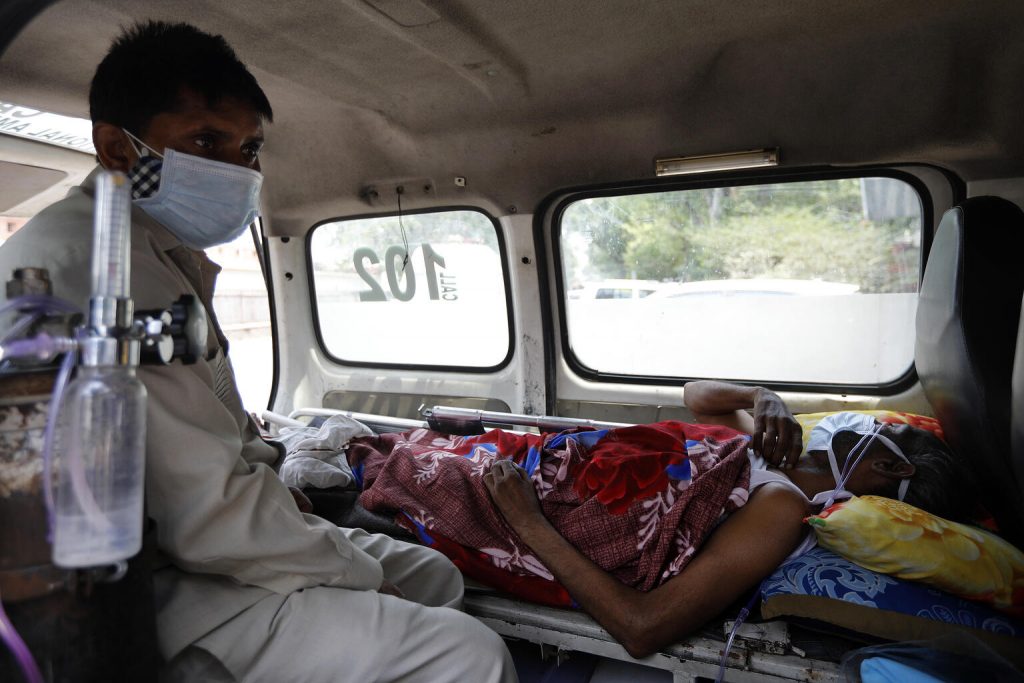
Statement by George Laryea-Adjei, UNICEF Regional Director for South Asia
NOTE: Spokespersons available for interview
KATHMANDU, 4 May 2021 – “The scenes we are witnessing in South Asia are unlike anything our region has seen before. Family members of patients are pleading for help as the region reels under an acute shortage of medical-grade oxygen. Exhausted health workers are being pushed to the brink of collapse. We are faced with a real possibility that our health systems will be strained to a breaking point – leading to even more loss of life.
“Urgent action and steadfast leadership are indispensable to stopping the catastrophe. Governments must do everything within their power to stop the devastation, and partners that are able to send assistance must do so immediately. The international community must step up without delay. This is not just a moral imperative. The deadly new surge in South Asia threatens us all. It has the potential to reverse hard-earned global gains against the pandemic if not halted as soon as possible.
“Let us not forget our individual responsibility. Every decision we make has the potential to alter the course of this surge – and to either safeguard or endanger the lives of those around us. We may be exhausted, but the virus is not yet exhausted. Now more than ever, we must commit ourselves to wearing masks, handwashing with soap as often as possible, keeping physical distance and getting ourselves vaccinated if we have the opportunity to do so.
“The very low levels of vaccination in South Asia magnify the likelihood of the virus spiraling even further out of control. In almost all countries in the region, with the exception of Maldives and Bhutan, fewer than 1 in 10 people have been vaccinated. Now more than ever, we must ensure vaccines equitably reach all populations. Manufacturing must be ramped up, technology transferred, and doses equitably shared. None of us are safe until all of us are safe.
“As we work to respond to the public health emergency, we cannot forget the profound impacts of the pandemic on children. Children are being directly affected by the disease in higher numbers than ever before. They are losing parents and caregivers, becoming witnesses to scenes no child should ever see, and being cut off from their schools and vital support networks. And as resources are diverted and services saturated, the essential health services they so heavily rely on – including routine immunization programmes – are now at risk of being compromised, if not shuttered entirely.
“If this happens, it will once more be the most vulnerable children and families who will suffer most. The first wave of the pandemic caused drastic cuts in the availability and use of essential public health services in South Asia, costing us the lives of an estimated 228,000 children and 11,000 mothers. We simply cannot let this happen again. We must do everything within our power to keep essential health, immunization and nutrition services running – and make sure women and children everywhere feel safe to use them.
“Viruses know no borders. We must come together now as a global community to stop the devastation and protect our children.”
###
ENDS
Notes to Editors
About UNICEF South Asia:
UNICEF works in some of the world’s toughest places, to reach the world’s most disadvantaged children. Across more than 190 countries and territories, we work for every child, everywhere, to build a better world for everyone.
UNICEF’s Regional Office for South Asia (ROSA) works with UNICEF Country Offices in Afghanistan, Bangladesh, Bhutan, India, the Maldives, Nepal, Pakistan and Sri Lanka to help to save children’s lives, defend their rights, and help them fulfil their potential. For more information about UNICEF’s work for children in South Asia, visit www.unicef.org/rosa and follow UNICEF ROSA on Twitter and Facebook.
For more information:
Contact aedin@unicef.ie



